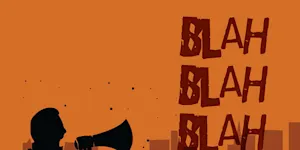What Makes This Word Tick
The word "harbinger" beckons with the promise of foresight and change. It tells tales of things yet to come, often acting as the bringer of news—not always cheerful, but always significant. When you hear this word, expect a message that signals what lies ahead.
If Harbinger Were a Person…
They'd be a wise old messenger, clad in a well-worn cloak that has seen its fair share of storms. Patient and observant, they'd have an aura of mystique, always arriving with just the right tidbit of information to prepare you for what's next.
How This Word Has Changed Over Time
Once upon a time, a "harbinger" referred to someone who provided lodging or arrangements for the army. But as time marched on, this intriguing word evolved to signify something that hints at the future—a change far more exciting than booking a room!
Old Sayings and Proverbs That Use Harbinger
"Red sky at morning, sailor take warning" might not directly name harbingers, but it certainly embodies their spirit. The sky itself becomes a harbinger for sailors, predicting the weather ahead with its colorful hues.
Surprising Facts About Harbinger
Did you know that "harbinger" has roots in the hospitality industry of all places? Originally, it was linked to people who went ahead to find lodging for travelers. From simple hosts to the vanguard of news—the journey of this word is nothing short of fascinating.
Out and About With This Word
You'll often find "harbinger" out in nature, as the arrival of migratory birds or the first bloom of spring heralds the change of seasons. It's a word that thrives on the cusp of transitions, forever eager to announce the new.
Pop Culture Moments Where Harbinger Was Used
In the realm of cinema and television, characters or events that serve as precursors to major plot twists are often referred to as harbingers. Mystery shows and thrillers delight in using this word to keep audiences on the edge of their seats!
The Word in Literature
Harbinger adds a touch of the prophetic to any literary landscape. Novelists have long relied on this word to set the scene for impending doom or fortune. Its presence in a narrative often signals that change is afoot.
Moments in History with Harbinger
The fall of the Berlin Wall was a harbinger of change, signaling the end of an era and the beginning of a new one for Europe. It was a moment when the world held its breath, aware that the tides were turning.
This Word Around the World
In some cultures, animals like the albatross are considered harbingers of luck, both good and bad. Meanwhile, the Japanese view cherry blossoms as harbingers of spring, symbolizing the fleeting nature of beauty and life.
Where Does It Come From?
"Harbinger" hails from Middle English, with its ancestry rooted in the Old French word "herbergeor," meaning one who provides lodging. It's a classic example of a word that wandered far from its beginnings.
How People Misuse This Word
Sometimes people mistakenly use "harbinger" simply to mean an event or thing, rather than something that foreshadows or announces what's to come. Its rich, predictive essence can easily be watered down when not quite understood.
Words It’s Often Confused With
Omen: While an omen can be a harbinger, not all harbingers are omens. Omens specifically hint at future events, often with a supernatural or mystical undertone.
Forebearer: This word sounds similar but usually refers to an ancestor or predecessor, rather than something foretelling the future.
Messenger: A harbinger carries the connotations of change, while a messenger simply delivers information, without necessarily predicting anything.
Additional Synonyms and Antonyms
Synonyms include forerunner, precursor, and portent. Antonyms might be aftermath, result, or consequence, as these terms describe outcomes rather than predictions.
Want to Try It Out in a Sentence?
With the first frost as a harbinger, we knew winter was not far behind, ushering in its own blanket of quiet and cold.
















